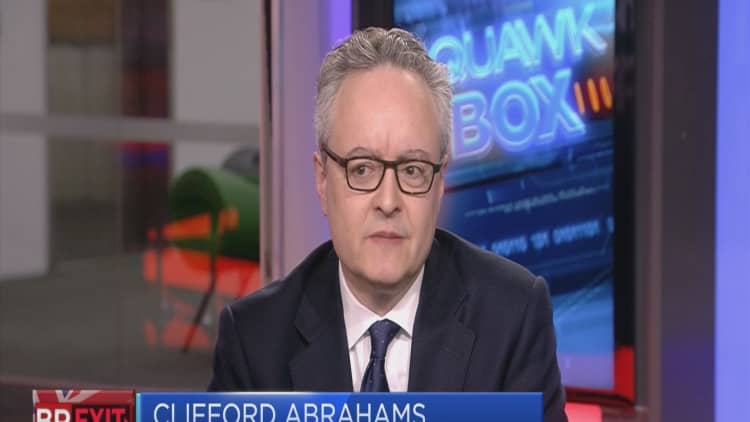Dutch lender ABN Amro on Friday increased mid-term financial goals to improve its cost/income ratio further, and said its dividend payout ratio would likely rise from the current 50 percent, according to Reuters.
In its first update on mid-term financial targets since its 2015 initial public offering (IPO), ABN said its cost/income ratio, a key measure of performance for banks, is on track to reach a 56 percent-58 percent target by 2020 and would fall below 55 percent by 2022.
Dividend payout was raised to 60 pct for the third quarter of this year, which the company said was an indication of a sustained increase.
Brexit
ABN Amaro, like other European banks, has been preparing for the uncertainty surrounding U.K.'s exit from the European Union.
"We are based in the Netherlands so we can serve our clients from there. We have a UK operations so we can serve our UK clients from here. So clearly there is legal preparations that we are on to but it is not a big infrastructure issue for us," Clifford Abrahams, chief financial officer of ABN Amro told CNBC's "Squawk Box Europe" on Friday.

"London is the financial capital of Europe. That is where the buyers and sellers are, the liquidity is and
that is important for Europe as a while and for us at ABN Amro," he added.
Earlier this week, May said she had obtained enough support from her senior ministers for her draft Brexit deal to move forward. This came after she also received support from officials at the EU earlier in the week.
But by Thursday morning a short flurry of ministers decided to resign from their positions in protest at her proposals questioning the future of May's draft agreement. However, amid all these discussions, banks have often found themselves struggling to get certainty on what this would mean for business and for their position in London that has often been referred to as the financial capital of Europe.
"Personally, I still think London will still be at the heart of European capital markets, whatever the legal and constitutional changes," Abrahams said.

